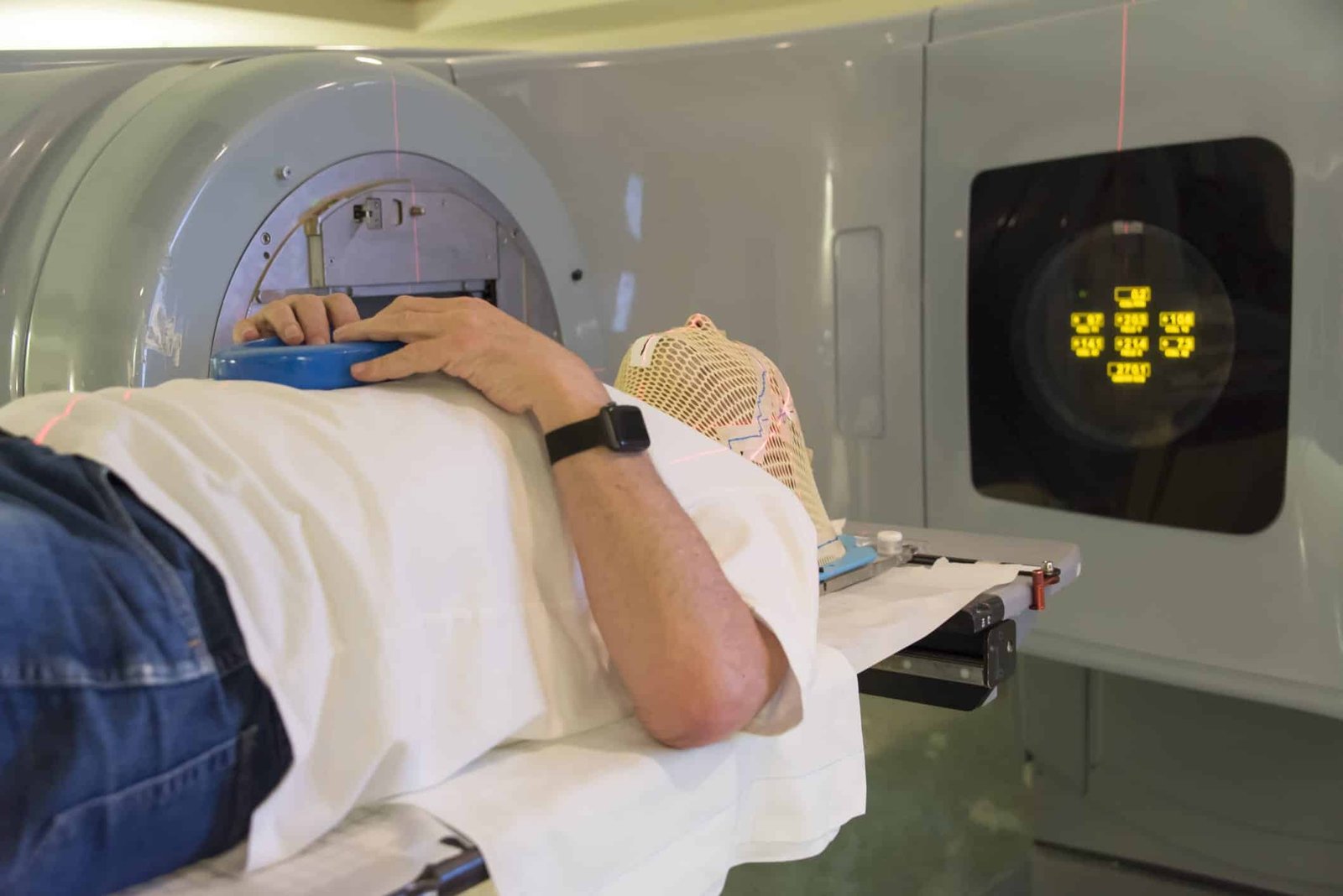Summary: A Northwestern Medicine study reveals that prostate cancer patients undergoing radiation therapy experienced significant improvements in sleep by listening to short mindfulness recordings during their treatment sessions.
This approach integrates mindfulness directly into the radiation process, aiming to manage not only cancer but also the accompanying physical and emotional side effects.
The study, though small with 27 participants, demonstrates a feasible and effective method to engage men in supportive care, traditionally a challenging group, enhancing their overall treatment experience.
Men with prostate cancer who are treated with radiation therapy experience significant side effects such as fatigue, sleep problems, anxiety, and depressive symptoms. But listening to mindfulness audio recordings significantly eased those symptoms, a new Northwestern Medicine study has found.
While reclining and receiving their daily five-to-15-minute radiation treatment, men in the study listened to short (three- to six-minute) audio-based mindfulness recordings that asked them to focus on their breath, posture, sounds, and environment.
To the authors’ knowledge, this is the first study to deliver a brief mindfulness intervention during actual radiation treatment versus suggesting patients seek it out in their own time outside the treatment facility, says principal investigator David Victorson, PhD.
The study is published in the journal Global Advances in Integrative Medicine and Health. An audio file of mindfulness used in the study can be listened to here.
“We were really leveraging the fact that they were a captive audience,” says Victorson, professor of medical social sciences at Northwestern University Feinberg School of Medicine, in a release. “We’re optimizing their treatment to not just treat their cancer but also get a jump on managing physical and emotional side effects.”
The findings have implications for how best to engage men with cancer, who are known to not participate in needed oncology supportive care, Victorson says in a release.
“Men with cancer—no matter the age—are a hard group to help because they don’t tend to engage in supportive care activities like their women counterparts. You build it, and they don’t come,” Victorson says in a release. “The fact that this intervention is passive—they don’t have to go to a support group, and they can be getting their treatment while we layer on symptom support—is a twofer.”
Side effects in men who received the mindfulness intervention significantly decreased compared to men in the control group, who listened to relaxing music during treatment, the study found. For example, the mindfulness group showed a 2.65-point score decrease in fatigue and a 4.5-point score decrease in sleep disturbance, which suggests a clinically meaningful improvement, Victorson said.
The control group’s scores worsened by 7.46 points (fatigue) and 6.15 points (sleep disturbance), the study found.
While this was only a small pilot study (27 participants), the research resulted in important discoveries about whether an intervention like this is feasible and when it can and should be implemented, Victorson says in a release.
“Our primary goal was to determine the point we should start the intervention in someone’s radiation treatment,” Victorson says in a release. “Then, we don’t freak them out the first day but get them early enough to see their symptoms improve.”
Mindfulness is known to help people in two ways, Victorson notes. One is through the parasympathetic nervous system by inducing a relaxation response. For instance, one audio clip played during the intervention said, “Let’s start by just lying for a few moments to ground yourself, paying attention to your posture, and bringing attention to the breath and the body.”
The second way mindfulness helps is through emotion regulation, Victorson says. For example, the same audio clip goes on to compare thoughts to clouds passing by in the sky. The voice instructs the listener to focus on their breathing, which “offers you a place to stand from which to view thoughts and feelings coming and going in the mind.
And as you learn to see your thoughts as mental events arising and falling, you are cultivating underneath them a sense of deep stillness and peace.”
“Listen to this enough, and you start to notice thoughts come up. The goal is to see if you can observe them without reacting to them. That’s how to regulate our constantly thinking, ruminating, and reacting minds,” Victorson says in a release. “It can be very helpful in managing anxiety, pain, and fatigue.”
Save my name, email, and website in this browser for the next time I comment.
10May
Wisconsin Sleep Society Conference 2024
Milwaukee Marriott West
17May
2024 AADSM Annual Meeting
Hyatt Regency New Orleans
17May
ATS 2024
San Diego Convention Center
19May
ATS 2024 Conference
San Diego Convention Center
23May
Inspire Therapy Informational Event – Baptist Health
Baptist Health Innovative Learning Center – Belle Conference Room
No event found!
